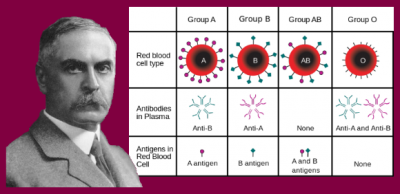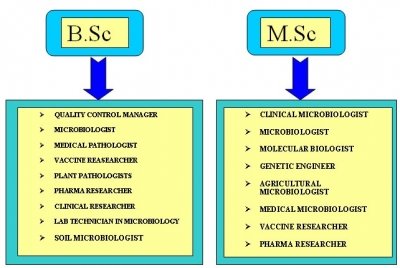
Austrian biologist Karl Landsteiner (1868-1943) is mostly known for his pioneering work in the classification of blood groups. However, he was also responsible for many other discoveries in the field of medicine that have helped improve immunity and health.
Born in Vienna, Karl lost his father at an early age and was brought up by his mother. After his schooling, he studied medicine at the University of Vienna and later took up research in the field of organic chemistry. He worked under many renowned chemists of the time. During his research at the Institute of
Hygiene in Vienna, Karl became interested in the mechanisms of immunity and the nature of antibodies. He soon published his first article on serology- the study of blood.
At the time, blood transfusion was considered risky as it led to fatal blood clotting in the recipient’s body. Landsteiner was the first to suggest that blood transfusion may be unsuccessful because an individual’s blood might not be compatible with that of another. In 1901, he classified blood types into three groups-A, B and C (later called O). This enabled donors and recipients to match their blood types before transfusions.
A few years later, guided by his work, the first successful blood transfusion was carried out by a doctor in New York. During World War I, the lives of many soldiers were saved due to transfusion of compatible blood.
Landsteiner was also instrumental in the discovery of the polio virus. It was earlier believed that polio was caused by a bacterium. With the help of bacteriologist Erwin Popper, Landsteiner not only proved that polio was caused by a virus but also traced the manner of its transmission. Their discovery made possible the development of a vaccine for polio.
Later, when he moved to New York, Karl teamed up with noted biologist Alexander Wiener to identify the Rh (rhesus) factor that relates human blood to that of the rhesus monkey. The Rh factor, which occurs when the mothers blood is incompatible with that of the foetus, was believed to be responsible for a fatal infant disease.
Landsteiners discovery of blood groups and studies on the subject earned him the Nobel Prize in Physiology or Medicine in 1930.
Though he was much sought-after as a world authority on the mechanisms of immunity, Landsteiner shunned publicity and preferred a quiet life away from the public gaze. On June 26, 1943, he died following a coronary seizure, while still at work in his laboratory.
Picture Credit: Google


